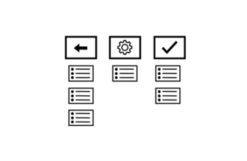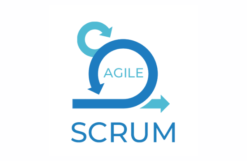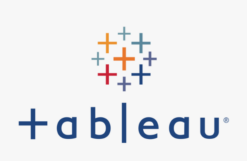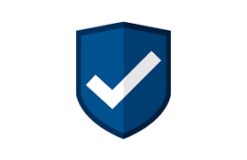Duration: 3 days – 21 hrs
Overview
Discover the world of ITIL 4 with our comprehensive ITIL 4 Foundation Training and Certification course. This course not only provides you with a deep understanding of ITIL 4 concepts but also equips you with essential resources to excel in your journey towards becoming ITIL certified.
Objectives
- Understand ITIL Principles: Gain a clear comprehension of the fundamental principles and key concepts that underpin the ITIL 4 framework.
- Familiarize with ITIL Practices: Explore the various ITIL practices and their application in real-world scenarios, equipping you with practical insights.
- Learn the Service Value System: Grasp the Service Value System (SVS) and how it integrates with the four dimensions of service management to create value for customers and stakeholders.
- Master the Four Dimensions: Understand how the four dimensions – organizations and people, information and technology, partners and suppliers, and value streams and processes – impact service management.
- Comprehend ITIL Guiding Principles: Dive into the ITIL guiding principles and learn how they guide organizations in adopting and adapting ITIL practices.
- Explore ITIL Service Value Chain: Explore the Service Value Chain (SVC) and understand how it links activities together to deliver value to customers and stakeholders.
- Prepare for ITIL 4 Foundation Exam: Equip yourself with the knowledge and skills necessary to confidently sit for the ITIL 4 Foundation certification exam and pass with flying colors.
- Apply ITIL Concepts: Gain practical insights into applying ITIL concepts in real-world scenarios, enhancing your ability to improve IT service management practices.
- Enhance Career Prospects: Elevate your professional profile by obtaining a globally recognized ITIL 4 Foundation certification, opening doors to various IT service management opportunities.
- Build a Strong Foundation: Lay the groundwork for advanced ITIL certifications and further exploration of IT service management principles.
Audience
- IT Professionals: Individuals working in IT roles, whether technical, managerial, or support-oriented, who seek to gain a comprehensive understanding of ITIL 4’s principles and practices.
- Service Desk and Support Teams: Members of service desk and support teams who want to enhance their knowledge of IT service management and align their practices with industry standards.
- IT Managers: IT managers responsible for overseeing service delivery and IT operations, looking to implement best practices and improve overall IT service management.
- Project Managers: Project managers interested in understanding how ITIL principles can be integrated into project management processes to ensure successful project outcomes.
- IT Consultants: IT consultants aiming to expand their expertise by incorporating ITIL 4 concepts into their consulting services, providing valuable insights to clients.
- Business Analysts: Business analysts looking to grasp the impact of IT service management on business processes and learn how ITIL 4 can drive business value.
- Service Owners and Process Managers: Individuals responsible for specific IT services or processes who wish to align their practices with ITIL 4 principles.
- IT Governance Professionals: Those involved in IT governance, risk management, and compliance who want to understand how ITIL 4 supports effective governance practices.
- Entry-Level IT Personnel: Individuals new to IT roles who want to establish a strong foundation in IT service management to kick-start their careers.
- Anyone Interested in IT Service Management: Professionals from various backgrounds who recognize the importance of IT service management and want to familiarize themselves with ITIL 4’s principles.
Pre- requisites
- Those who require a basic understanding of the ITIL Framework
- IT professionals or others working within an organization that has adopted ITIL
- Those who want to understand how ITIL can be used to enhance IT service management
Course Content
Introduction to ITIL 4
- Purpose of ITIL
- Evolution of ITIL
- Definitions: Service, IT Service, ITSM
- About ITIL 4
- The ITIL 4 Certification Scheme
- ITIL 4 Foundation Exam
Key Concepts of Service Management
- Definitions
- Organizations
- Products and Service Offering
- Service Relationships
- Utility and Warranty
The Four Dimensions of Service Management
- Introduction to the Four Dimensions of
- Service Management
- Organizations and People
- Information and Technology
- Partners and Suppliers
- Value Streams and Processes
- External factors
Service Value System
- Service Value System
- Inputs and Outcome of the SVS
- Components of the SVS
Service Value Chain
- Introduction to ITIL 4 Service Value
Chain
- Service Value Chain Activities
Plan
Improve
Engage
Design & Transition
Obtain/Build
Deliver & Support
- Service Value Chain Interaction with
ITIL Practices
ITIL 4 Guiding Principles
- Introduction to ITIL 4 Guiding
- Principles
- Focus on value
- Start where you are
- Progress iteratively with feedback
- Collaborate and promote visibility
- Think and work holistically
- Keep it simple and practical
- Optimize and automate
- Interaction of ITIL Guiding Principles
General Management Practices
- Continual Improvement
- Information Security Management
- Relationship Management
- Supplier Management
- Architecture Management
- Knowledge Management
- Measuring and Reporting
- Organizational and Change Management
- Portfolio Management
- Project Management
- Risk Management
- Service Financial Management
- Strategy Management
- Workforce and Talent Management
Service Management Practices
- Change Control
- Incident Management
- Problem Management
- Service Desk
- Service Level Management
- Service Request Management
- Service Configuration Management
- Availability Management
- Capacity and Performance Management
- IT Asset Management
- Monitoring and Event Management
- Release Management
- Service Continuity Management
Technical Management Practices
- Deployment Management
- Infrastructure and Platform Management
- Software Development and Management













